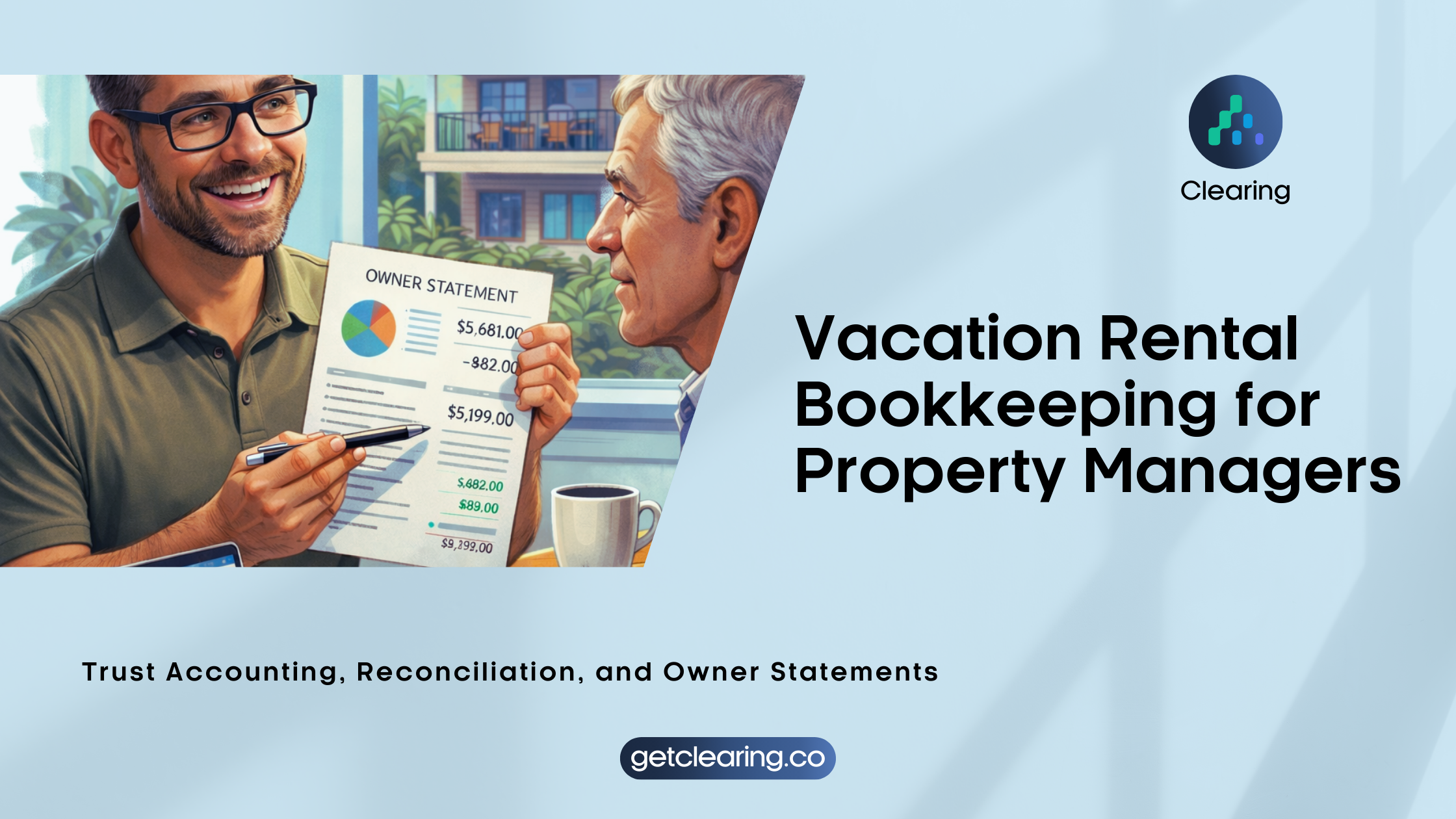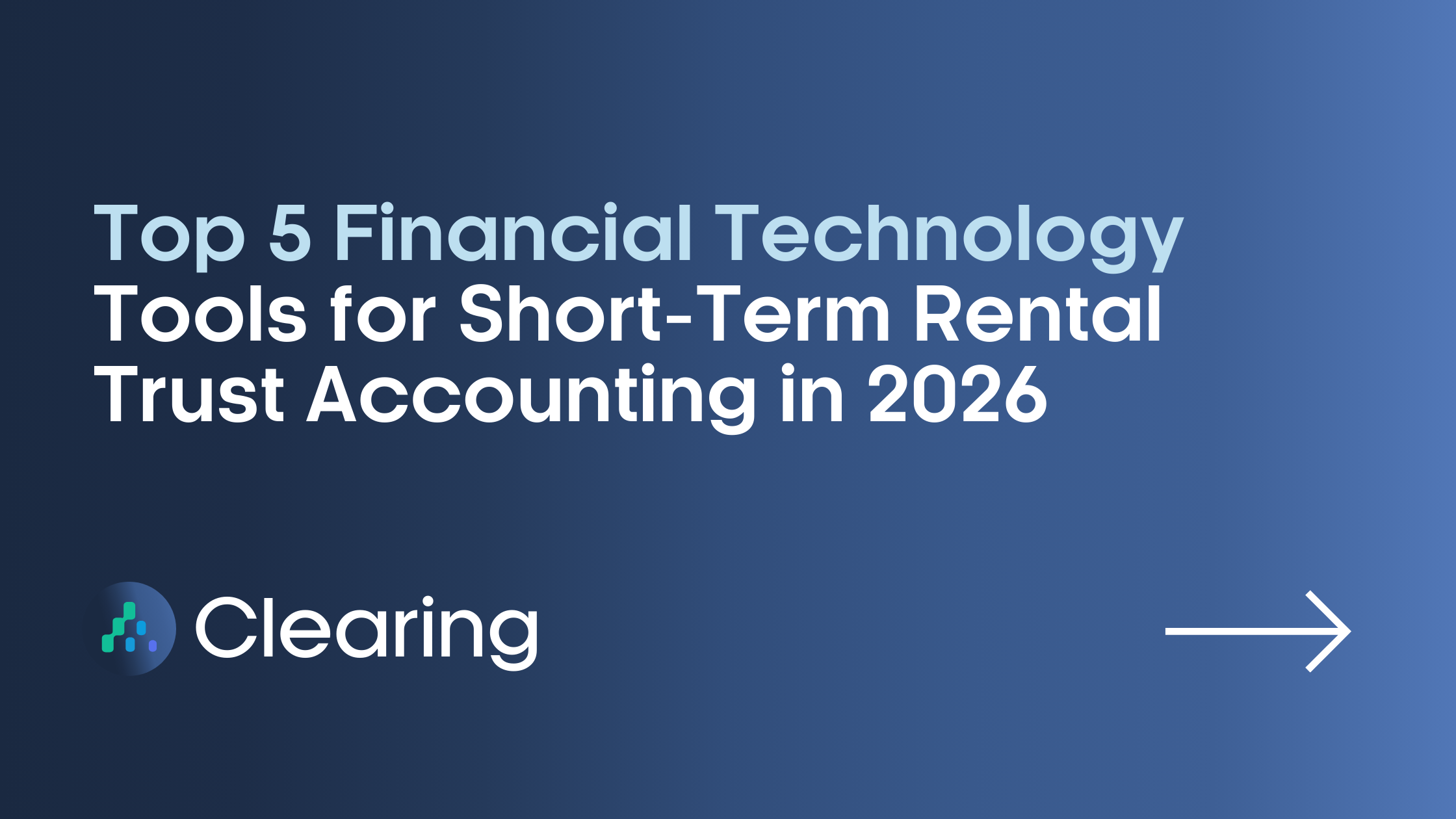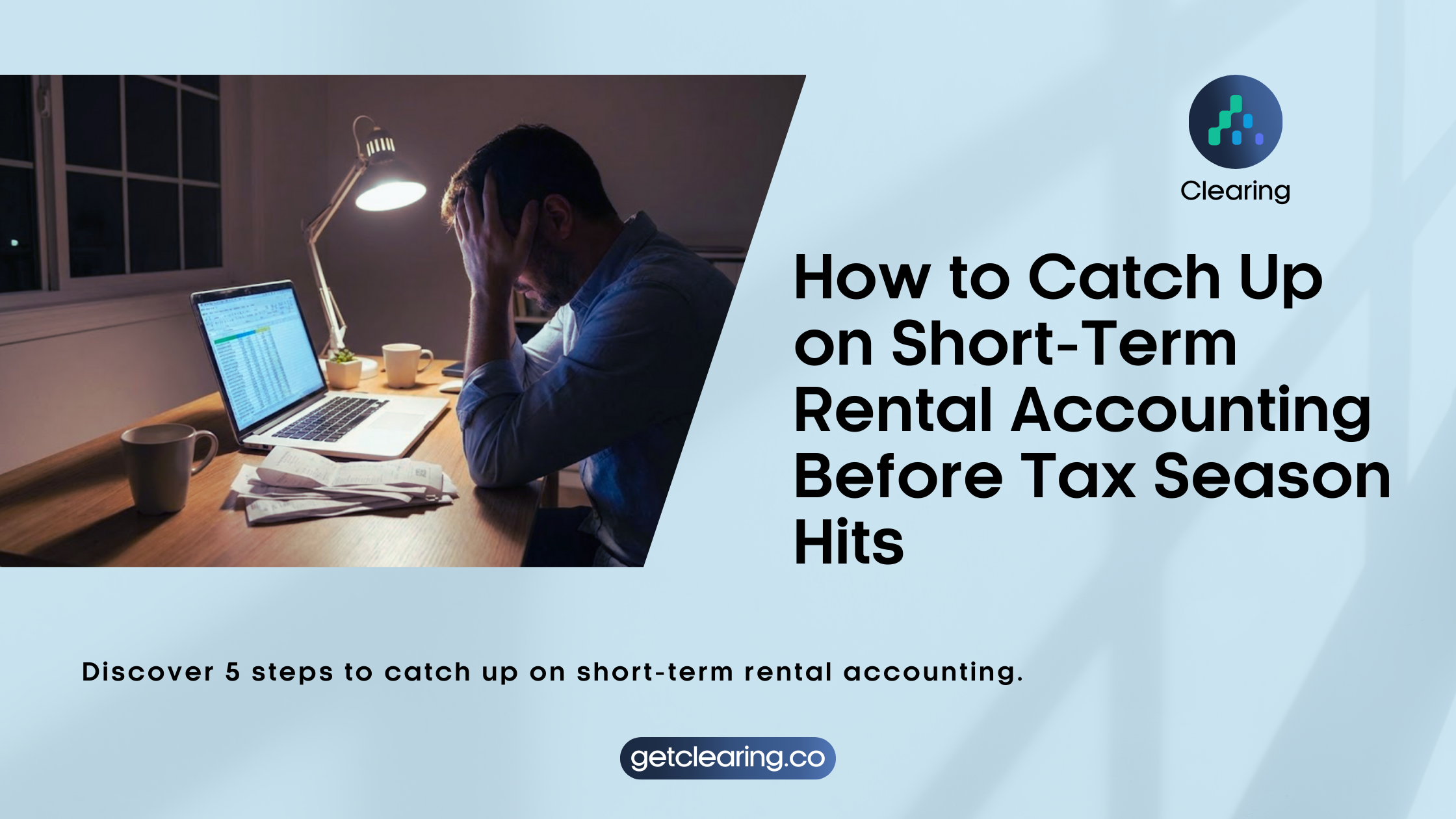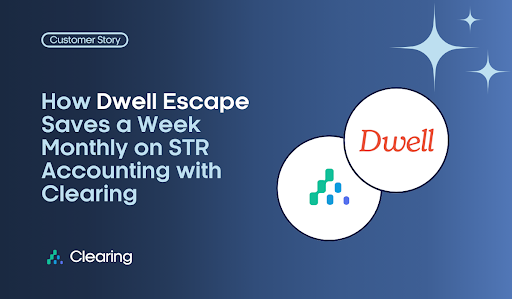Quick Start Guide to Real Estate Investing for Beginners
New to real estate investing? Our beginner's guide covers all you need to know to start your journey in real estate investing.
April 2, 2024
Benjamin

Key Highlights
- Investing in real estate can generate additional income through renting out properties.
- Real estate investments offer the potential for long-term growth and tax advantages, such as deductions for mortgage interest and property taxes.
- There are various ways to invest in real estate, including direct purchase of properties, investing in real estate investment trusts (REITs), and crowdfunding platforms.
- Rental properties and house flipping can be profitable investment strategies, but they require time and effort.
- It's important to research the real estate market, secure financing, find the right property, make an offer, and manage the investment effectively.
- Understanding the different types of real estate investments, such as residential properties, commercial real estate, and REITs, can help diversify your portfolio and maximize returns.
Introduction
Real estate investing is a lucrative strategy for generating passive income, building wealth, and diversifying your portfolio. This guide explores key aspects of real estate investment, offering insights and tools to help you get started.
Benefits include cash flow, capital gains, and tax advantages. Rental properties can provide steady passive income and potential profits. However, challenges like upfront costs and ongoing expenses should be considered.
From preparing for your first investment to understanding different types of real estate investments, this guide offers valuable insights for beginners and experienced investors alike.
Understanding Real Estate Investing
Before starting real estate investing, grasp the market basics. Real estate involves buying properties for income or growth. Unlike stocks, real estate offers physical assets you can interact with.
The real estate market differs from stocks. Stocks fluctuate daily due to external factors, while real estate is steadier. This stability makes it appealing for predictable returns.
Including real estate in your investment mix diversifies your portfolio. Real estate often doesn't follow stock and bond trends, reducing risk and enhancing performance.
Real estate investments vary - residential (homes), commercial (offices), or REITs (property-owning companies). REITs let you earn from property shares.
Market shifts occur due to economic conditions, rates, and demand. Research and tracking trends aid decision-making for investments.
Upcoming sections will cover real estate benefits, preparation steps for first investments, and types of investments available. Understanding these will guide your real estate journey.
Benefits of Investing in Real Estate

Investing in real estate offers a range of benefits that can make it an attractive investment strategy. Here are some of the key advantages:
Passive Income
One of the main benefits of investing in real estate is the potential for generating passive income. Rental properties, in particular, can provide a steady stream of cash flow through rental income. This passive income can help cover the costs of the property, such as mortgage payments, property taxes, and maintenance expenses, while also providing you with additional income.
Long-Term Growth
Real estate investments have the potential to appreciate in value over time. While short-term price fluctuations may occur, real estate generally tends to increase in value in the long run. This long-term growth can lead to capital gains when you decide to sell the property, providing you with a potential return on your investment.
Tax Advantages
Real estate investments offer various tax advantages that can help reduce your taxable income. Deductions for mortgage interest and property taxes can lower your annual tax bill, while depreciation can allow you to offset rental income. Additionally, the 1031 exchange allows investors to defer capital gains taxes by reinvesting the proceeds from one property into another "like-kind" property.
Real Estate Assets
Owning real estate provides you with tangible assets that can diversify your investment portfolio. Unlike stocks or bonds, which are intangible, real estate allows you to have a physical asset that you can see and touch. This can provide a sense of security and stability in your investment portfolio.
By investing in real estate, you can enjoy the benefits of passive income, long-term growth, tax advantages, and tangible assets. These advantages can make real estate a valuable addition to your overall investment strategy.
Preparing for Your First Investment
Before making your first real estate investment, it's crucial to prepare yourself and set clear investment goals. Here are some steps to help you get started:
Educate Yourself
Take the time to learn about the real estate market, investment strategies, and potential risks. Read books, attend seminars, and follow reputable sources of information to build your knowledge base.
Define Your Investment Goals
Determine what you hope to achieve through real estate investing. Are you looking for short-term profits or long-term income? Clarifying your goals will help guide your investment decisions.
Assess Your Financial Situation
Evaluate your financial resources and determine how much you can comfortably invest in real estate. Consider consulting with a financial advisor who specializes in real estate investments to ensure you make informed decisions.
By preparing yourself and setting clear investment goals, you'll be better equipped to make sound investment decisions and maximize the potential returns from your real estate investments.
What You'll Need to Get Started
When preparing for your first real estate investment, there are several key factors to consider. Here's what you'll need to get started:
1. Real Estate Agent
Working with a knowledgeable and experienced real estate agent can help you navigate the market and find the right investment opportunities. They can provide valuable insights, negotiate deals on your behalf, and guide you through the buying process.
2. Financing
Unless you're purchasing a property outright with cash, you'll need to secure financing. This may involve obtaining a mortgage loan, which will require a downpayment and may be subject to interest rates and loan terms.
3. Home Equity
If you already own a home, you may have built up equity that can be used to finance your real estate investment. Home equity loans or lines of credit can provide the necessary funds to purchase an investment property.
4. Property Management
Depending on your investment strategy and the number of properties you own, you may need to hire a property manager. They can handle tasks such as finding tenants, collecting rent, and overseeing maintenance, allowing you to focus on other aspects of your investment.
5. Market Research
Thoroughly research the real estate market in your desired investment location. Consider factors such as property prices, rental demand, vacancy rates, and future development plans to ensure you make informed investment decisions.
By understanding and addressing these key factors, you'll be better prepared to embark on your real estate investment journey.
Setting Your Investment Goals
Setting clear investment goals is crucial for any real estate investor. Here are some factors to consider when defining your investment goals:
Risk Tolerance
Assess your risk tolerance and determine how much risk you're willing to take on. Real estate investments can range from low-risk, stable properties to higher-risk, high-reward opportunities. Understanding your risk tolerance will help you select investments that align with your comfort level.
Cash Flow
Determine the level of cash flow you want to achieve from your real estate investments. Cash flow refers to the difference between the rental income generated by the property and the expenses associated with owning and managing it. Positive cash flow can provide you with additional income and help cover the costs of the property.
Investment Group
Consider joining an investment group or partnering with other investors. This can provide access to larger investment opportunities, shared resources, and collective expertise. Investment groups can also help spread the risk among multiple investors.
By setting clear investment goals and considering factors such as risk tolerance, cash flow, and investment groups, you'll be able to focus your efforts and make informed decisions that align with your long-term financial objectives.
Step-by-Step Guide to Your First Investment

Embarking on your first real estate investment can be an exciting but overwhelming experience. Here's a step-by-step guide to help you navigate the process:
1. Research the Market: Thoroughly research the real estate market in your desired location. Consider factors such as property prices, rental demand, and future development plans to identify investment opportunities.
2. Secure Financing: Determine your financing options and secure the necessary funding for your investment. This may involve obtaining a mortgage loan or exploring alternative financing options.
3. Find the Right Property: Work with a real estate agent to find properties that align with your investment goals. Consider factors such as location, property condition, and potential rental income.
4. Make an Offer: Once you've found a suitable property, work with your real estate agent to make an offer. Negotiate terms and price to ensure you're getting the best deal possible.
5. Manage Your Investment: After purchasing the property, consider hiring a property manager to handle rental calendars, rent collection, and property maintenance. This will help streamline the management process and maximize your returns.
By following these steps, you'll be well on your way to successfully completing your first real estate investment.
Step 1: Research the Market
Before making any real estate investment, it's crucial to research the market thoroughly. Here's what you need to know when researching the market:
Real Estate Market: Understand the current state of the real estate market in your desired location. Is it a buyer's market or a seller's market? Are property prices rising or falling? Analyzing market conditions will help you make informed investment decisions.
Market Conditions: Consider factors such as supply and demand, vacancy rates, and rental prices. Understanding market conditions will give you insights into the potential profitability of your investment.
Commercial Real Estate: If you're considering investing in commercial real estate, research the local market for office buildings, retail spaces, or industrial properties. Analyze factors such as rental rates, occupancy rates, and the demand for commercial space.
By conducting thorough market research, you'll be able to identify investment opportunities and make well-informed decisions that align with your investment goals.
Step 2: Secure Financing
Once you've identified a potential investment property, securing financing is the next crucial step. Here's what you need to know when securing financing for your real estate investment:
Interest Rates: Shop around and compare interest rates offered by different lenders. Even a small difference in interest rates can significantly impact your monthly payments and overall costs.
Monthly Payments: Determine how much you can afford to borrow and calculate the monthly payments based on different interest rates and loan terms. This will give you an idea of the financial commitment required for the investment.
Mortgage Interest: Understand the terms and conditions of your mortgage, including the interest rate, loan term, and repayment schedule. Be aware of any additional fees or charges associated with the mortgage.
By carefully considering interest rates, monthly payments, and mortgage terms, you'll be able to secure financing that aligns with your financial situation and investment goals.
Step 3: Find the Right Property
When searching for the right investment property, there are several factors to consider. Here's what you need to know when finding the right property:
Residential Real Estate: If you're interested in residential real estate, consider factors such as location, property condition, and rental demand. Look for properties in desirable neighborhoods with high occupancy rates.
Commercial Properties: If you're considering commercial real estate, evaluate factors such as location, market demand, and potential rental income. Analyze the potential for growth in the area and consider the type of commercial property that best suits your investment goals.
Property Taxes: Research the property taxes associated with potential investment properties. High property taxes can eat into your rental income and affect the overall profitability of your investment.
By carefully evaluating different types of properties and considering factors such as location, condition, and property taxes, you'll be able to find the right investment property that aligns with your investment goals.
Step 4: Make an Offer
Once you've found the right investment property, it's time to make an offer. Here's what you need to know when making an offer:
Real Estate Agent: Work with a real estate agent who has experience in investment properties. They can provide guidance on the market value of the property and help you negotiate the best deal.
Offer: Determine the offer price based on market research and the condition of the property. Consider factors such as potential rental income, property appreciation, and the overall return on investment.
Market Value: Understand the market value of the property you're interested in. Compare it with similar properties in the area to ensure you're making a fair offer.
By working with a real estate agent and carefully considering the offer price, you'll be able to negotiate a favorable deal and secure the investment property.
Step 5: Manage Your Investment
Successfully managing your real estate investment is essential for maximizing returns. Here's what you need to know when managing your investment:
Property Manager: Consider hiring a property manager to handle booking calendars, rent collection, and property maintenance. A professional property manager can save you time and effort while ensuring your investment runs smoothly.
Rental Income: Monitor the rental income generated by your property. Regularly review rental rates and consider increasing them in line with market conditions to maximize your returns.
Operating Expenses: Keep track of the operating expenses associated with your investment property. This includes property taxes, insurance, maintenance costs, and any other expenses required to keep the property in good condition.
By enlisting the help of a property manager, monitoring rental income, and managing operating expenses, you'll be able to effectively manage your investment and maximize its potential returns.
Types of Real Estate Investments

Real estate investments come in various forms, each with its own advantages and considerations. Here are the main types of real estate investments:
Residential Properties: Investing in residential properties involves purchasing single-family homes, apartment buildings, or condominiums for rental purposes. Residential properties can provide steady cash flow through rental income.
Commercial Real Estate: Commercial real estate investments include office buildings, retail spaces, and industrial properties. Commercial properties can offer higher rental income potential but may require larger upfront investments.
Real Estate Investment Trusts (REITs): REITs are companies that own and operate income-generating properties. Investors can buy shares of these companies and earn dividends from rental income. REITs offer a convenient way to invest in real estate without directly owning and managing properties.
By understanding the different types of real estate investments, you can diversify your portfolio and choose investments that align with your financial goals and risk tolerance.
Residential Properties
Investing in residential properties can be a lucrative strategy for generating rental income. Here are some key considerations when investing in residential properties:
Apartment Buildings: Purchasing apartment buildings can provide multiple rental units and a steady stream of rental income. Consider factors such as location, vacancy rates, and potential renovations when evaluating apartment buildings.
Rental Properties: Single-family homes, townhouses, and condominiums can also be profitable investments. Consider factors such as rental demand, property condition, and potential rental income when selecting rental properties.
Property Taxes: Understand the property tax implications of investing in residential properties. High property taxes can impact your overall profitability, so it's important to factor them into your financial analysis.
By carefully evaluating apartment buildings, rental properties, and property taxes, you can make informed decisions and maximize the potential returns from your residential property investments.
Commercial Real Estate
Investing in commercial real estate offers its own set of opportunities and considerations. Here's what you need to know about investing in commercial real estate:
Office Buildings: Purchasing office buildings can provide rental income from businesses leasing office space. Consider factors such as location, market demand, and potential rental income when investing in office buildings.
Shopping Centers: Investing in shopping centers can offer the potential for rental income from retail tenants. Evaluate factors such as foot traffic, tenant mix, and location when considering shopping center investments.
Building Permits: Understand the regulations and requirements for obtaining building permits when investing in commercial real estate. Renovations or construction projects may require permits, which can impact the timeline and cost of the investment.
By carefully evaluating office buildings, shopping centers, and building permit requirements, you can make informed decisions and maximize the potential returns from your commercial real estate investments.
Real Estate Investment Trusts (REITs)
Real estate investment trusts (REITs) offer a convenient way to invest in real estate without directly owning and managing properties. Here's what you need to know about investing in REITs:
Real Estate Funds: REITs pool funds from multiple investors to invest in income-generating properties. By buying shares of a REIT, investors can earn dividends from the rental income generated by these properties.
Stock Market: REITs are publicly traded on stock exchanges, allowing investors to buy and sell shares like any other publicly traded company. This provides liquidity and flexibility in buying and selling REIT shares.
Regular Income: REITs are required to distribute a significant portion of their earnings to shareholders in the form of dividends. This can provide a regular income stream for investors.
By investing in REITs, you can gain exposure to a diversified portfolio of income-generating properties, enjoy liquidity in the stock market, and earn regular income from your investment.
Maximizing Your Returns
Maximizing your returns in real estate investing requires careful planning and strategy. Here are some key considerations:
Cash Flow: Focus on properties that generate positive cash flow, where rental income exceeds operating expenses. This will provide you with a steady stream of income and help cover the costs of the property.
Capital Gains: Consider the potential for capital gains when selecting investment properties. Look for properties in areas with strong appreciation potential to maximize your returns when you decide to sell.
Rental Income: Regularly review and adjust rental rates to maximize your rental income. Stay informed about market conditions and adjust rental rates accordingly.
By focusing on positive cash flow, capital gains potential, and maximizing rental income, you'll be able to maximize your returns and achieve your financial goals in real estate investing.
Renovation Tips for Higher Value
Renovating properties can be an effective way to increase their value and maximize returns. Here are some renovation tips:
Focus on Curb Appeal: Enhancing the exterior of the property can significantly impact its value. Consider landscaping, painting, and updating the front facade to attract potential buyers or tenants.
Kitchen and Bathroom Upgrades: These areas are often the most important to buyers and renters. Invest in modernizing kitchens and bathrooms to increase the property's appeal and value.
Energy-Efficient Improvements: Consider installing energy-efficient features, such as insulation, windows, and appliances. These improvements can not only increase the property's value but also attract environmentally conscious renters.
By strategically renovating properties, focusing on curb appeal, kitchen and bathroom upgrades, and energy-efficient improvements, you can increase their value and maximize your returns.
Strategies for Long-Term Success
Developing a strategy for long-term success in real estate investing is crucial. Here are some strategies to consider:
Define Your Investment Strategy: Determine your investment goals and develop a clear strategy for achieving them. This may involve focusing on cash flow, capital gains, or a combination of both.
Focus on Passive Income: Build a portfolio of properties that generate passive income through rental income. This can provide you with a steady stream of income and help you achieve financial independence.
Embrace Long-Term Growth: Real estate investments offer the potential for long-term growth. Focus on acquiring properties in areas with strong appreciation potential and hold onto them for the long term to maximize your returns.
By defining your investment strategy, focusing on passive income, and embracing long-term growth, you can set yourself up for long-term success in real estate investing.
Risk Management in Real Estate Investing
Managing risks is an essential part of real estate investing. Here's what you need to know about risk management:
Risk Management: Identify and assess potential risks associated with real estate investing. This includes factors such as market volatility, tenant/renter issues, and natural disasters.
Insurance Policies: Protect your investment by obtaining appropriate insurance coverage. This may include property insurance, liability insurance, and landlord insurance.
Market Volatility: Real estate markets can experience fluctuations due to economic conditions and other external factors. Diversify your portfolio and be prepared for market volatility to minimize risks.
By effectively managing risks, obtaining insurance coverage, and being prepared for market volatility, you can protect your investments and minimize potential losses.
Identifying Potential Risks
Identifying potential risks in real estate investing is crucial for effective risk management. Here are some common risks to consider:
RenterIssues: Problematic renters can cause financial and legal issues. Conduct thorough tenant screenings and establish clear rental agreements to minimize the risk of rental-related problems.
Natural Disasters: Properties located in areas prone to natural disasters, such as hurricanes or earthquakes, carry increased risks. Assess the potential risks and consider appropriate insurance coverage.
Economic Downturns: Economic downturns can impact property values and rental demand. Be prepared for potential market downturns by maintaining adequate cash reserves and diversifying your investment portfolio.
By identifying potential risks, implementing proactive measures, and staying informed about market conditions, you can effectively manage risks and protect your real estate investments.
Mitigating Risks Effectively
Investing in real estate can be a lucrative venture, but like any investment, it comes with its risks. To mitigate these risks effectively, it's important to follow a few key strategies.
First, diversify your real estate portfolio. Investing in different types of properties, such as residential, commercial, or industrial, can help spread out your risk. Additionally, consider diversifying your investment across different geographic locations to avoid being too heavily dependent on one market.
Second, maintain an emergency fund. Owning and managing real estate properties can come with unexpected expenses, such as repairs or vacancies. Having a financial cushion can help cover these costs without putting strain on your overall investment strategy.
Lastly, conduct thorough risk assessments before making any investment decisions. Evaluate factors such as market conditions, property location, and potential rental income. Seek advice from professionals, such as real estate agents or financial advisors, to ensure you're making informed choices.
By implementing these risk mitigation strategies, you can navigate the real estate market with more confidence and increase your chances of achieving long-term financial success.
Conclusion
Real estate investing can be a lucrative venture with the right approach. Understanding the benefits, preparing for your first investment, and navigating contracts are key steps. In addition to that, efficient financial management is paramount in navigating the complexities of real estate investment.
Clearing, a premier bookkeeping software for property managers, offers a streamlined solution to manage finances, optimize cash flow, and ensure accurate record-keeping.
Let's connect!
Clearing is a Financial Technology Company, not a bank.

.png)
.png)






.png)
.png)
.png)

.png)

.png)


.png)
.png)
.png)
%20(1).png)
%20(1).png)
%20(1).png)
.png)
%20(2).png)
%20(1).png)
%20(1).png)
.png)

.png)
.png)
.png)
%20(1).png)
.png)
.png)
.png)
.png)
.png)
.png)
.png)
%20(1).png)
.png)
.png)
.png)
%20(1).png)
%20(1).png)
%20(1).png)








.jpg)
%20(1).png)
%20(1).png)
%20(2).png)
%20(1).png)

%20(1).png)
%20(1).png)
%20(1).png)



%20(1).png)
%20(1).png)
%20(1).png)
%20(1).png)
%20(1).png)


%20(1).png)
%20(1).png)
%20(1).png)
%20(2).png)
%20(2).png)



%20(2).png)


%20(2).png)
%20(1).png)
.png)


%20(2).png)
%20(2).png)

.jpg)
.png)
.png)
.png)


